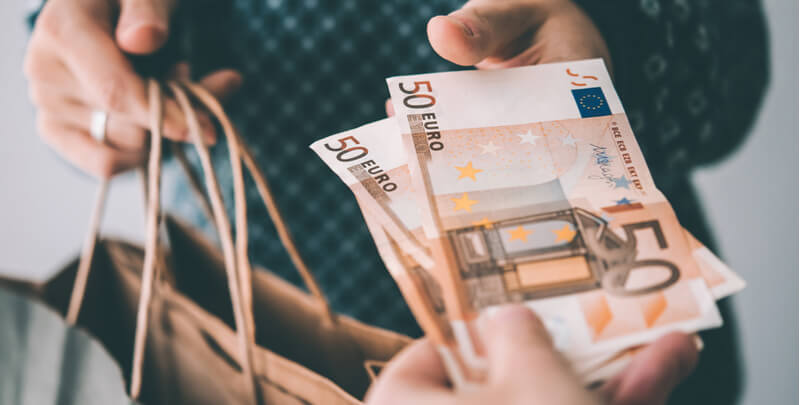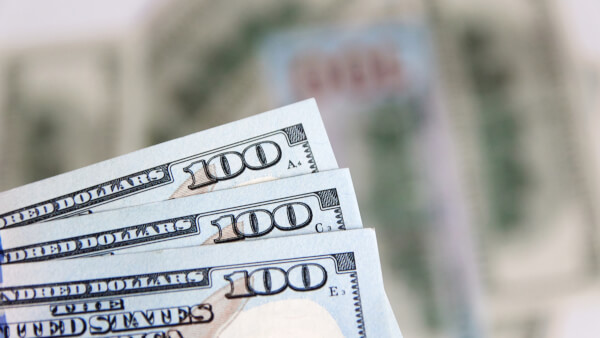Temporary changes to our guaranteed rates for sending money
Send money from your Wise currency balance to make sure your recipient gets the exact amount. Use Wise balances when you send money to make sure your...

The euro struggled against in the pound at the start of the week, despite better than expected economic data from the bloc. The pound euro exchange rate climbed 0.2% higher on Monday, hitting a high of €1.1435.
| What do these figures mean? |
|---|
| When measuring the value of a pair of currencies, one set equals 1 unit and the other shows the current equivalent. As the market moves, the amount will vary from minute to minute. For example, it could be written: 1 GBP = 1.13990 EUR Here, £1 is equivalent to approximately €1.14. This specifically measures the pound’s worth against the euro. If the euro amount increases in this pairing, it’s positive for the pound. Or, if you were looking at it the other way around: 1 EUR = 0.87271 GBP In this example, €1 is equivalent to approximately £0.87. This measures the euro’s worth versus the British pound. If the sterling number gets larger, it’s good news for the euro. |
Despite the dovish tone from Bank of England (BoE) governor Mark Carney last week, the pound was still able to gain ground versus the euro on Monday. Whilst Mark Carney talked down the prospects of a May rate hike, he did suggest that a hike could still happen in another month later in the year. Therefore, he didn’t extinguish the prospect of a rate hike and markets remain optimistic that monetary tightening could still be on the cards in the near future.
| Why do raised interest rates boost a currency’s value? |
|---|
| Interest rates are key to understanding exchange rate movements. Those who have large sums of money to invest want the highest return on their investments. Higher interest rate environments tend to offer higher yields. So, if the interest rate or at least the interest rate expectation of a country is relatively higher compared to another, then it attracts more foreign capital investment. Large corporations and investors need local currency to invest. More local currency used then boosts the demand of that currency, pushing the value higher. |
Today investors will digest a barrage of UK economic data with public sector net debt figures and Confederation of Business Industry (CBI) business optimism numbers potentially causing volatility.
Analysts are anticipating that Government net borrowing will show a decline from the previous surplus of £0.27 billion to a deficit of -£1.2 billion. Should this be the case then confidence among pound traders could briefly worsen, weighing on the likelihood of a BoE rate rise, pulling the pound lower. On the other hand, a smaller amount of government borrowing would bode well for the domestic outlook, potentially boosting the pound.
Demand for the euro initially improved, albeit marginally, following the release of the eurozone purchasing managers index survey. German manufacturing slowed les than expected dropping from 58.2 in March to 58.1 in April, above the 57.5 analysts forecast. Meanwhile, whilst eurozone manufacturing also slowed, the services and component expanded more than analysts expected.
The boost to the euro was short lived and the euro quickly lost ground. This is because investors didn’t believe that the pmi figures boosted the odds of the European Central Bank (ECB) hiking interest rates or tightening policy when they meet on Thursday. As a result, the euro fell against the pound.
The euro could dip lower today following the release of Germany’s April IFO Business sentiment survey. Last week the ZEW Sentiment survey pointed to weakness ahead in the German economy on falling demand. This could be reflected again today in the IFO release, with a weak reading potentially weighing on the euro.
| Why does poor economic data drag on a country’s currency? |
|---|
| Slowing economic indicators point to a slowing economy. Weak economies have weaker currencies because institutions look to reduce investments in countries where growth prospects are low and then transfer money to countries with higher growth prospects. These institutions sell out of their investment and the local currency, thus increasing supply of the currency and pushing down the money’s worth. So, when a country or region has poor economic news, the value of the currency tends to fall. |
| ----- |
| This publication is provided for general information purposes only and is not intended to cover every aspect of the topics with which it deals. It is not intended to amount to advice on which you should rely. You must obtain professional or specialist advice before taking, or refraining from, any action on the basis of the content in this publication. The information in this publication does not constitute legal, tax or other professional advice from TransferWise Limited or its affiliates. Prior results do not guarantee a similar outcome. We make no representations, warranties or guarantees, whether express or implied, that the content in the publication is accurate, complete or up to date. |
*Please see terms of use and product availability for your region or visit Wise fees and pricing for the most up to date pricing and fee information.
This publication is provided for general information purposes and does not constitute legal, tax or other professional advice from Wise Payments Limited or its subsidiaries and its affiliates, and it is not intended as a substitute for obtaining advice from a financial advisor or any other professional.
We make no representations, warranties or guarantees, whether expressed or implied, that the content in the publication is accurate, complete or up to date.
Send money from your Wise currency balance to make sure your recipient gets the exact amount. Use Wise balances when you send money to make sure your...

On 1st August, we removed the fee to hold larger amounts of euros in your Wise account. Why did we charge this fee? Until recently, the European Central Bank...

The pound finished the previous week over 1% higher versus the dollar. The pair closed the week at US$1.2742 and is seen moving higher in early trade on...

The pound–US dollar exchange rate continued to climb higher on Wednesday. Anticipation of a more cautious Fed and Brexit optimism helped lift the pair to a...

The pound ended Thursday at approximately the same level versus the US dollar that it had started. The pound US dollar exchange rate briefly spiked up to a...

Brexit chaos in the UK Conservatives plus an upbeat testimony from the Federal Reserve Chair made for a volatile session for the pound US dollar exchange rate...